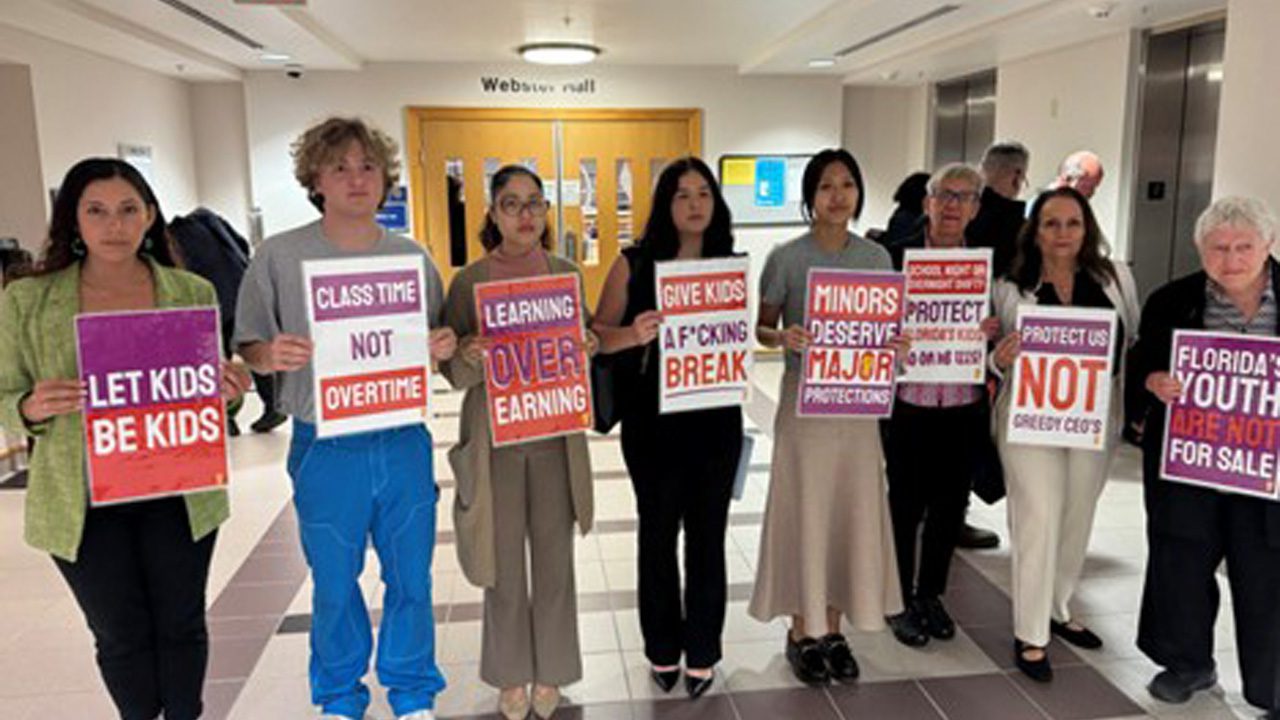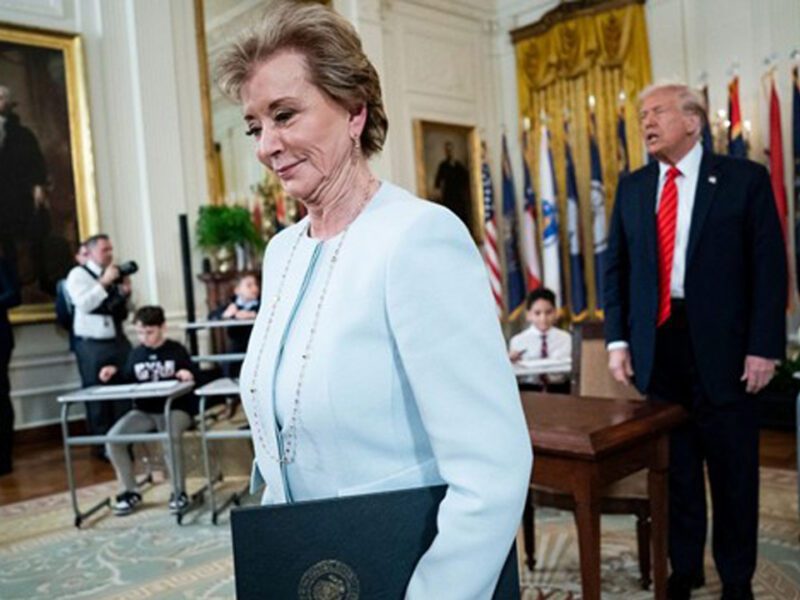
Dropping minors’ working restrictions gets first House committee approval
Florida Phoenix |
Panel passes amendment allowing 13-year-olds to work.
A Florida House committee approved a bill to eliminate key child labor protections, in the measure’s first sign of life in the chamber.
A similar bill passed a Senate committee last week to the dismay of critics worried that the measure would allow 16- and 17-year-olds to work longer hours, as well as 14- and 15-year-olds who receive permission from their school superintendent or are home schooled or enrolled in online school.
The House bill would remove Florida child labor protections by allowing minors to work more than 30 hours per week during the school year; work more than eight hours in a day without a 30-minute break; and work more than eight hours the day before a school day.
Rep. Monique Miller, a Republican representing part of Brevard County, is leading the bill through the House, which is similar to Sen. Jay Collins’ version in the Senate, including two amendments made Tuesday in the House. Collins represents part of Hillsborough County.
As amended, the House bill, HB 1225, now would prevent students from working overnight before school days. The original filed bill, along with Collins’ existing language, axes a state law cutting off minors’ workdays at 11 p.m. The House amendment now proposes cutting off work before a school day at 10 p.m.
The other amendment, Miller said, was to include a request from former Sen. Randy Fine, on behalf of his son David, to enable 13-year-olds to work during the summer during the year they turn 14.
Regardless of Florida law, employers have to abide by federal minor employment regulations, particularly the Fair Labor Standards Act, which mostly prohibits 13-year-olds from working in jobs outside of agriculture.
“Because federal law says that children cannot work under age 14 except in agricultural settings, this amendment only serves to change the age a Florida child can work on a farm from 14 to 13,” Florida Policy Institute CEO Sadaf Knight said in a news release.
“This alarming development seemingly looks to our youngest teens to fill an agricultural labor shortage gap. If lawmakers truly prioritize the health, safety, and education of Florida youth, they will reject any further undoing of child labor protections in our state.”
Last week, before the amendment reinstating a prohibition for overnight work was filed, House Speaker Daniel Perez said he had “personal concerns” with the bill and that he has “been kind of going back and forth.”
Rep. Michele Rayner argued that some children lack guardians who might protect them against exploitation, while Rep. Yvonne Hinson said she’s concerned the bill is not considerate of educational outcomes.
“I really have a problem with this, because the unintended consequence could potentially be exploitation of our children,” Rep. Angie Nixon said.
As for potential pressure from employers to work excessive hours, “God gave us a great barrier for that, and that is parents. Parents can definitely oversee what children are allowed to do,” Miller said.
However, she confirmed there was no provision in the bill addressing parental rights for employed minors.
DeSantis comment
Democrats and some public speakers referenced comments from Gov. Ron DeSantis two weeks ago, when he said, “Why do we say that we need to import foreigners, even import them illegally, when, you know, teenagers used to work at these resorts, college students should be able to do this stuff.”
Miller and Collins both deflected that the governor’s comments addressed a labor shortfall amid stricter immigration enforcement and instead talked about how minors benefit from having a job.
Miller said the bill is “giving them the opportunity to be productive citizens when they graduate.”
The bill passed the subcommittee 12-6.
The no-votes came from Democrats joined by GOP Rep. Susan Valdes, who switched her party affiliation from Democrat to Republican before this session.
The bill is assigned to two additional committees — Intergovernmental Affairs and Commerce.
“I’m once again here speaking on behalf of our students who are currently in class trying to get their education, trying to move forward, and they cannot be here to speak to all of you as adults that are putting their lives at risk, in jeopardy,” Laura Muñoz, civic engagement director with Florida Student Power, said during public testimony on the bill.
The meeting was attended by several youth advocates from Minds Without Borders, Youth Action Fund, and Florida Student Power Network.





